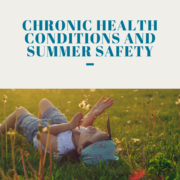Back-to-School Health and Safety Tips for Parents

Heading back to school is an exciting time for families of elementary schoolers. Oftentimes, the excitement and anticipation take center stage, but going back to school can also mean stress for children and parents. Once the obligatory first day photos, school shopping, new sneakers, packed lunch boxes, and orientations are handled, the anticipation dwindles, replaced with questions like, “What now?” or “What have we forgotten?” Below are the nuts and bolts of ensuring a healthy and safe start for heading back to elementary school.
1. Avoid skipping breakfast at all costs. Like many kids, your child may not experience hunger immediately upon waking. This can turn breakfast into an afterthought, which can quickly become a major pitfall if children begin skipping breakfast regularly. If your children are not keen on eating right away, see about waking them a little earlier to allow for more time in the morning before school. Even a measly 15 minutes could be enough time to spur a desire for breakfast. The longer he or she is awake before heading off to school, the more likely it is that he/she will want something to eat. If all else fails, consider stashing breakfast bars, fruit, or drinkable yogurts for the car ride so that your child has an option for last-minute nibbling before heading into school.
2. Those back-to-school shoes may be super cute; however, the blisters that accompany their first wear will not be. Encourage your child to put comfort first when picking out school outfits. We all know that even the tiniest blister can produce excruciating pain. This can make recess, walking around the cafeteria, P.E., etc. unbearable. Consider breaking those new shoes in over the weekend and packing a few bandaids in the lunchbox just in case. Similarly, depending on the school, or even from one classroom to another, temperature can vary drastically. With air conditioning, or the lack thereof, children can become uncomfortable and distracted if they are sweating or shivering all day. Encourage layers to ensure comfort throughout the day and from room to room. However, because of the likelihood that that sweater or long sleeve will come off at any given time in the school day, personalized clothing labels or even Sharpie initials can ensure that lost items become found and clothing makes it home.
3. If your child has a food allergy, no matter how severe, be sure that the school knows about the dietary restrictions. Beyond the school nurse, teachers, paraeducators, building staff and cafeteria aids should be aware of any severe food allergies. Anything from treats shared at school, arts and crafts materials, cleaning products, air fresheners, etc., can contain allergens or may be processed and packaged alongside allergens. To avoid the possibility of a reaction, consider sending a “just in case” email to school to ensure that health records are updated and all staff are aware of the food allergy. Some parents find it helpful to send their child to school with fun “about me” cards with their child’s photo and dietary restrictions listed. These “business cards” are especially helpful for young elementary schoolers. They can also contain any information about epipen use, emergency contacts, and the pediatrician or allergist’s phone number.
4. For children who are extremely sensitive to the sun and prone to sunburn, ask the school if it is okay for your child to pack and apply travel sunscreen for recess, physical education, soccer practice, or any other outdoor activities. Outdoor time can amount to an hour or more, depending on the child’s school; this leaves plenty of time for sun exposure and subsequent burn. School policy will likely prohibit teachers or other school staff from applying sunscreen, so consider purchasing an easy-to-apply option for your child to apply it himself. The roll-on, deodorant-looking sticks work great for quick-drying, easy application.
5. Remind your child to drink water throughout the day. This is an obvious tidbit; however, school nurses report dehydration as one of the major catalysts to most school illnesses and nurse visits. Obviously, water fountains are aplenty in schools, but also ask if water bottles are allowed in class. Having water at hand provides a constant reminder to sip throughout the day to stay hydrated, alert, and focused.






